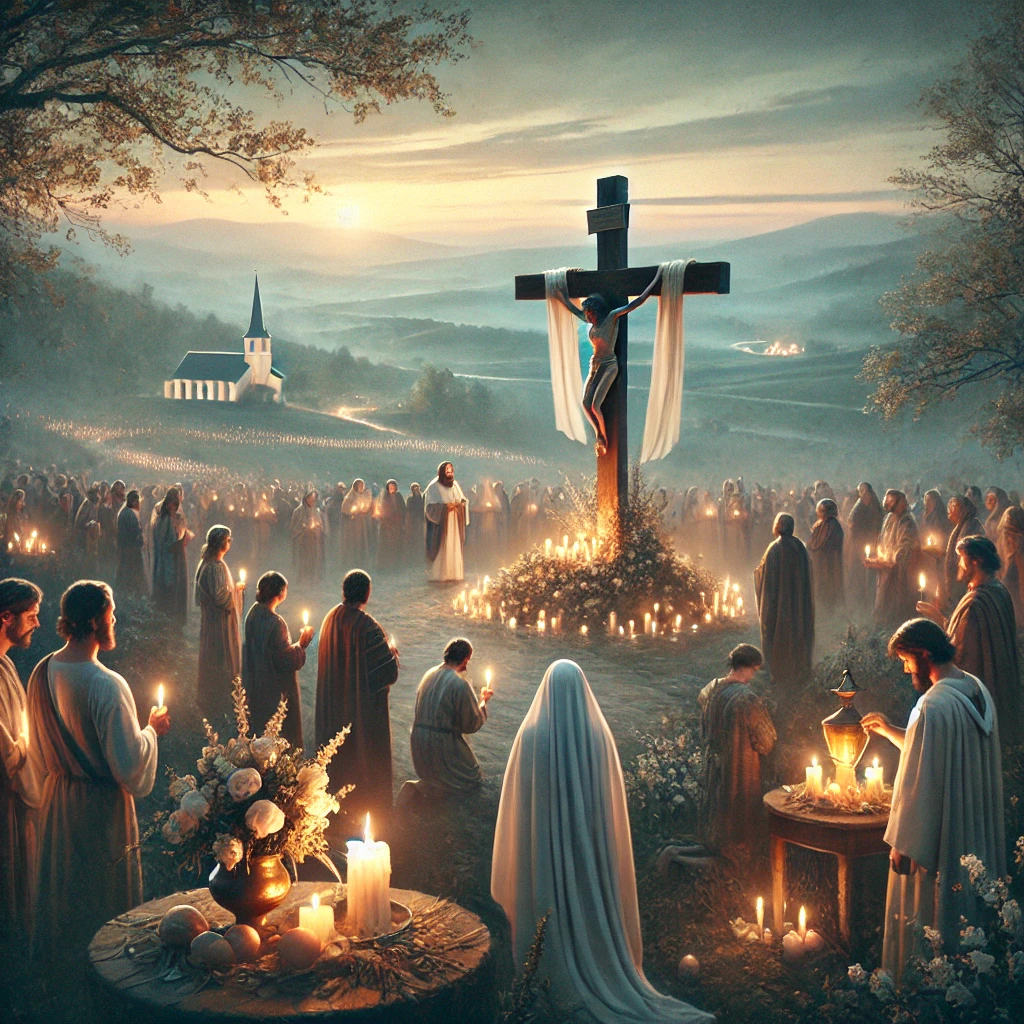
Good Friday, observed by Christians worldwide, is a solemn day that commemorates the crucifixion and death of Jesus Christ. Falling on the Friday before Easter Sunday, Good Friday is one of the most significant events in the Christian calendar. It is a day marked by mourning, reflection, and prayers, as Christians remember the sacrifice that Jesus made for humanity. Although it is a day filled with sorrow, Good Friday also carries a message of hope, redemption, and love, as it paves the way for Easter and the resurrection of Jesus.
The Meaning and Origins of Good Friday
The term “Good Friday” may seem paradoxical because it commemorates a day of suffering and death. However, in the context of Christianity, “good” signifies the positive impact of Jesus’ sacrifice, which is seen as an act of divine love and salvation for all. According to Christian beliefs, Jesus willingly accepted death to atone for the sins of humanity, offering believers forgiveness and a path to eternal life.
The events of Good Friday are chronicled in the New Testament. After being betrayed by one of his disciples, Judas Iscariot, Jesus was arrested, tried, and sentenced to death by crucifixion. He was mocked, scourged, and made to carry his cross to Golgotha, the hill where he was crucified. His final hours were spent enduring immense suffering, but he offered forgiveness to his persecutors, embodying love and mercy even in death. This ultimate sacrifice, Christians believe, was made so that humanity could be redeemed and have the hope of salvation.
Good Friday Traditions and Observances
Good Friday is a day of mourning and reflection, marked by various traditions and observances that differ slightly among Christian denominations but share a common spirit of reverence. Many churches hold special services that include readings from the Gospel, recounting Jesus’ final hours, prayers, and meditations on the meaning of his suffering.
The most common observance on Good Friday is the “Stations of the Cross,” a ritual that involves a series of prayers and reflections on 14 events from Jesus’ journey to his crucifixion. Churches often display images or symbols for each station, allowing worshippers to walk through and reflect on the suffering Jesus endured. This act of devotion encourages believers to reflect on the profound love that Jesus showed by sacrificing himself.
In many parts of the world, Good Friday is also observed as a day of fasting and penance. Many Christians abstain from eating meat and, in some traditions, consume only one meal to honor the suffering of Jesus. The atmosphere in churches is somber, and some Christian denominations strip their altars of decorations and cover crucifixes with cloth to symbolize the mourning of Jesus’ death.
Good Friday Around the World
Good Friday traditions vary around the world, reflecting different cultural interpretations of the day’s significance. In the Philippines, for example, some devout individuals reenact the crucifixion, symbolizing their solidarity with Jesus’ suffering. In Spain and parts of Latin America, there are solemn processions featuring statues and images representing Jesus’ last moments.
In many Western countries, Good Friday is a public holiday, with businesses and schools closed to allow people time for reflection and participation in church services. In places like Ireland, Good Friday has traditionally been a dry day, with the sale of alcohol restricted as a mark of respect.
The Spiritual Significance of Good Friday
For Christians, Good Friday represents more than a historical event; it is a day of deep spiritual significance. Reflecting on Jesus’ sacrifice invites believers to examine their own lives, to practice compassion, forgiveness, and humility. Good Friday serves as a reminder of the love Jesus demonstrated by enduring suffering for humanity’s redemption and calls Christians to live by his example.
The sorrow of Good Friday, however, is not the end of the story. It is intrinsically linked to the joy of Easter, when Christians celebrate Jesus’ resurrection and the triumph of life over death. Good Friday, therefore, symbolizes a journey from darkness to light, from suffering to salvation, offering a message of hope and redemption.
Conclusion
Good Friday is a powerful day of remembrance, reflection, and reverence. It encourages Christians to honor the profound sacrifice of Jesus and to strive toward a life of love, forgiveness, and compassion. Observed with solemnity and respect, Good Friday is a reminder of the depths of divine love and the promise of salvation. As Christians around the world gather to remember Jesus’ crucifixion, they are reminded of the enduring hope that Easter brings, marking the transformation from sorrow to joy and from death to everlasting life.



